National Survey of State Laws
Easily Compare State Laws on Abortion, Gun Regulation, and More!
In the past few months, debates about gun regulation, abortion, and voting rights have been the center of news outlets due to recent mass shootings and Supreme Court rulings. To help users better understand some of these timely topics, HeinOnline contains National Survey of State Laws (NSSL): an invaluable print and online resource that allows for quick state-by-state law comparison using an interactive chart. This is the easiest way to stay informed on current state law.
The database is derived from Richard Leiter’s National Survey of State Laws print editions. Not only are the current laws reflected within the database, but users can use the database to compare the same laws as they existed in 2005, 2008, 2015, 2018, and 2019.
While the print version of the 9th edition is in the midst of being published, we have updated the following chapters to reflect the most current law, so users can stay up to date with what’s trending:
By the end of the month, every topic listed in the database will display the laws as they currently stand. The print companion to the online database will be available by late summer.
Navigating the Database
From the database homepage, users can browse laws by category or topic. The topics featured in NSSL fall into eight general legal categories: Business and Consumer Laws; Criminal Laws; Education Laws; Employment Laws; Family Laws; General Civil Laws; Real Estate Laws; and Tax Laws. Select any category to view a list of topics. Select the More Information icon next to any topic to see a general overview of the law.
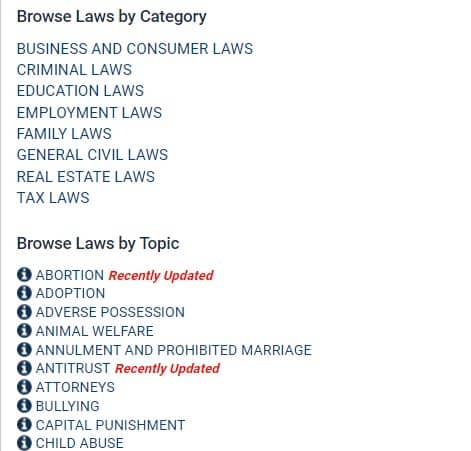
Let’s compare the various abortion laws within the United States.
Once selecting the abortion topic, users will see an interactive chart including the specified law for each state. The top column includes important points for each law. Beneath, brief statements provide the core points for each state’s statute. References to state statutes and code sections are provided, helping researchers further their research.
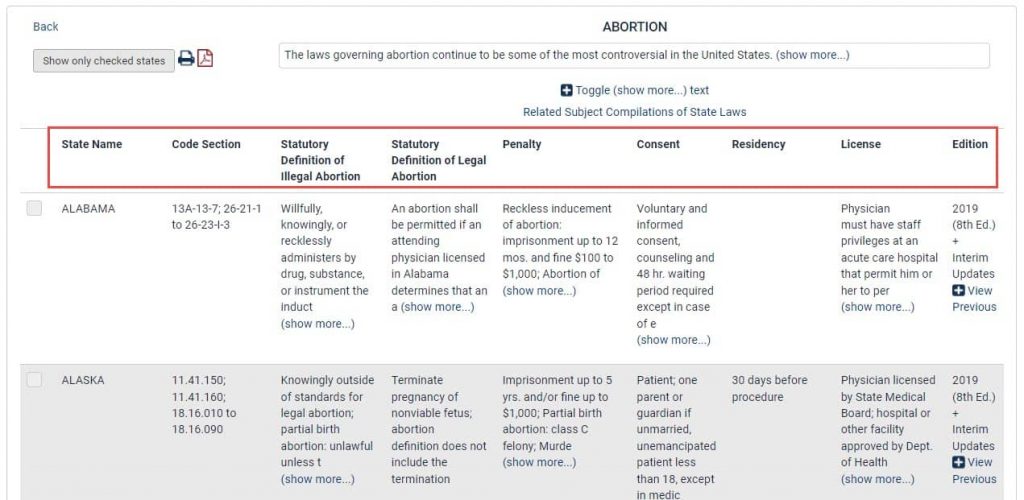
Comparing Across Specific States
Since this chart includes every state, let’s narrow this down to only show the states of Mississippi and New York to see how their laws differ. Check the boxes next to each desired state and select Show only checked states.


This provides a new chart showing only the two selected states, allowing for easy comparison.
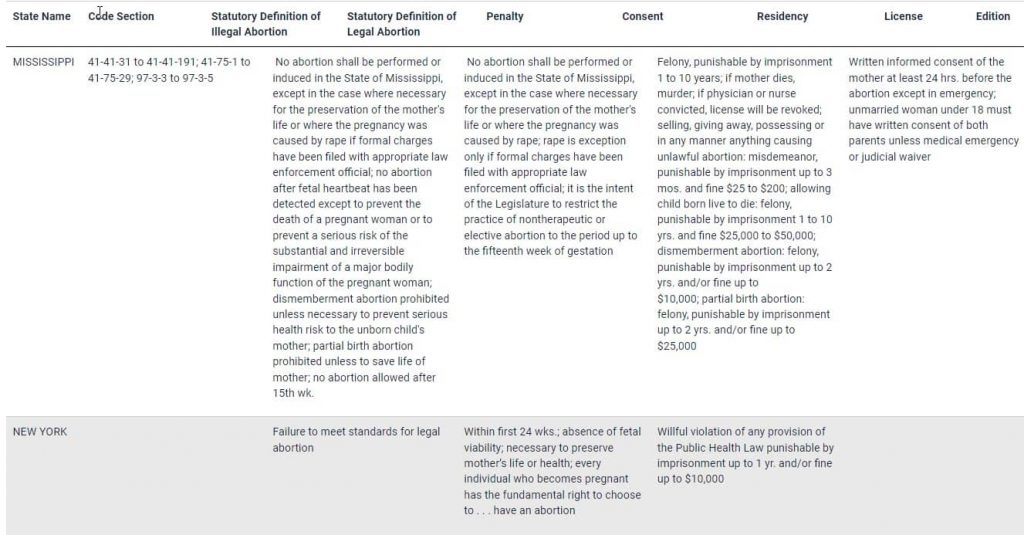
For example, we can see that in New York, a woman can have an abortion within 24 weeks if the fetus is not viable, if it is necessary to preserve the mother’s health, or if a woman chooses to not carry the baby. No consent or license is necessary to carry out the procedure.
However, in Mississippi, abortion is allowed in the case where a mother’s life is at risk or if a pregnancy was caused by rape. The rape exception is only lawful if formal charges have been filed. Written consent of the mother must be provided. If the mother is under 18, the law then requires consent from both parents, unless it’s a medical emergency. Three licensed physicians must also sign off.
View Previous Editions
Users can analyze the data even further. Select View Previous under the Edition column to see how the law existed in previous years. Let’s see how the law has changed in New York.
In this case, we can see that back in 2005, New York state required a licensed M.D. after the 12th week to sign off on a medical abortion. In addition, abortion was only allowed if the mother’s life was in danger.
Subject Compilation of State Laws
Continue your research using links to Subject Compilations of State Laws Subjects, an award-winning resource that identifies and describes 50 state law surveys on hundreds of subjects in hundreds of sources.
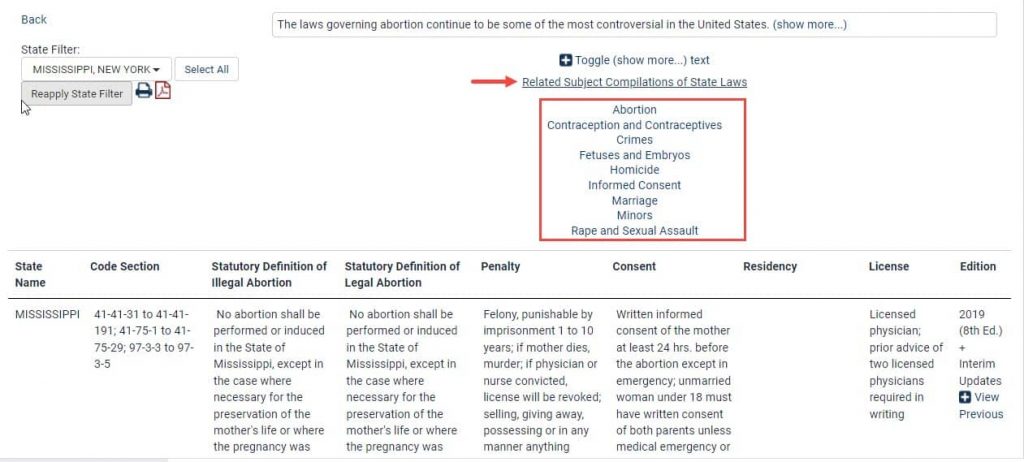
NOTE: The Subject Compilations of State Laws (SCSL) hyperlinks are only accessible to customers that also subscribe to the SCSL database.
About the Editor
Richard Leiter is the Director of the Schmid Law Library and Professor of Law at Nebraska College of Law. He got his start in law libraries in 1977 at Irell & Manella, a prominent Los Angeles law firm. After graduating from Southwestern University Law School in 1981, he moved to Texas where he worked at the University of Texas Tarlton Law Library and earned his Masters in Library and Information Science in 1985. Over time, he became the head of public services at the University of Nebraska, managed the library at Littler Mendelson Fastiff & Tichy in San Francisco, and managed academic law libraries at Regent University and Howard University before returning to Lincoln in 2000. Professor Leiter has written widely on law library, legal research, and legal information technology issues. He is an active scholar and has contributed to books, the Law Library Journal, and numerous other law library publications.

Pricing for National Survey of State Laws (NSSL)
Not subscribed? Pre-order the 9th edition* today and receive instant access to the fully searchable database.
Print and Online Resource
1 copy and access for 1 location…………………………….. $265.00
1 copy and access for multiple locations………………. $335.00
Additional print copies………………………………………………. $105.00
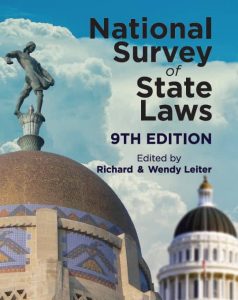
*The print edition will be available by late summer.



